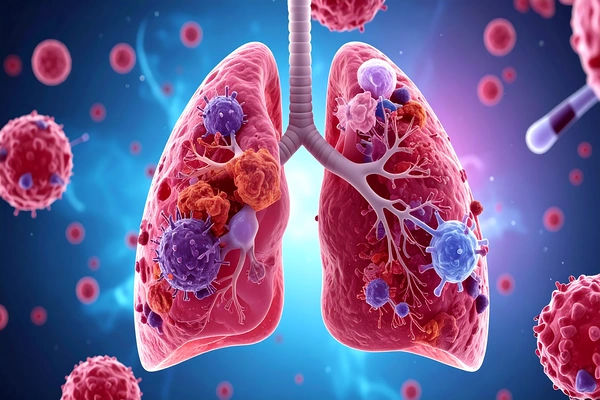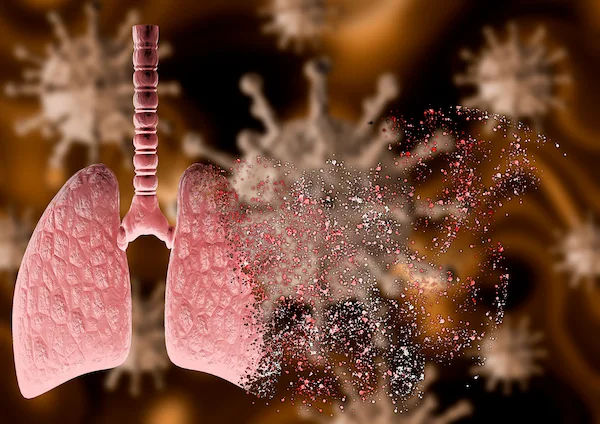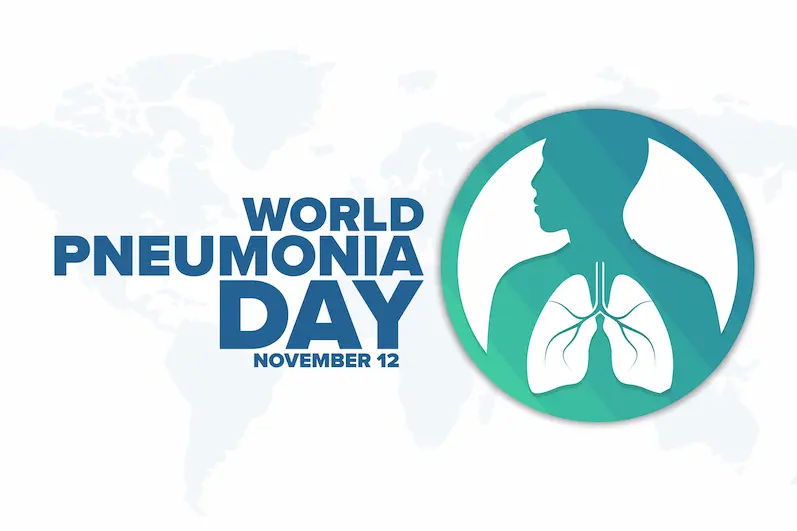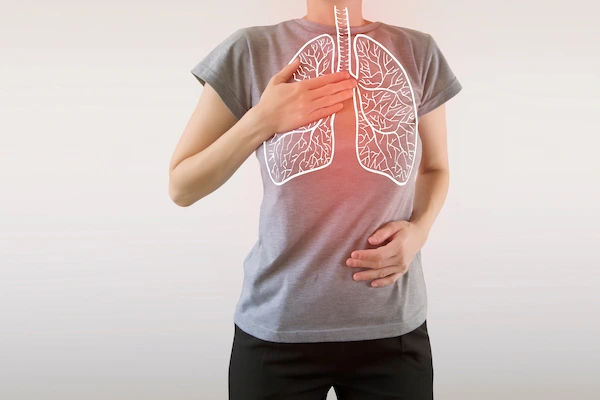Pneumonia Recovery Diet After Vaccination: Foods to Eat and Avoid
Your pneumonia vaccine diet and post-vaccine care guide: what to eat, what to avoid, and simple tips to support recovery and immune health.

Written by Dr. J T Hema Pratima
Reviewed by Dr. Mohammed Kamran MBBS, FIDM
Last updated on 13th Jan, 2026

Introduction
If you’ve just had a pneumococcal (pneumonia) vaccine—or you’re recovering from a recent bout of pneumonia—what you eat and drink can make a real difference in how you feel day to day. While there’s no single “pneumonia vaccine diet,” nourishing meals, steady hydration, and smart post-vaccine care help support your immune system, ease common side effects like fatigue or mild fever, and rebuild strength after illness. This guide explains the best foods to eat, what to limit, and practical tips to make recovery smoother.
Pneumonia vaccine diet basics: what to know first?
- The goal: There isn’t a special or restrictive pneumonia vaccine diet. Instead, focus on a balanced pattern of eating that supports immune health, keeps you hydrated, and provides enough protein and energy for recovery.
- After vaccination: Some people have mild, short-lived side effects (soreness, tiredness, low-grade fever). Eating light, nutrient-dense meals and drinking fluids can help you feel better as your body builds protection.
- After pneumonia: Recovery can take time. Gentle, frequent meals and adequate fluids help you regain energy, maintain muscle, loosen mucus, and prevent dehydration.
Core goals of a recovery-focused eating plan
- Hydration: Replace fluids lost from fever, rapid breathing, or sweating. Fluids help thin mucus and support energy.
- Protein: Repair tissues and preserve muscle, especially if illness reduces your appetite or activity.
- Colorful produce: Vitamins, minerals, and antioxidants from fruits and vegetables help meet daily nutrient needs.
- Whole grains and fiber: Steady energy and digestive support, especially helpful if antibiotics affect your gut.
- Healthy fats: Omega-3s and unsaturated fats support overall health and can make meals more satisfying.
- Gentle on the stomach: Choose easy-to-digest options if your appetite is low or your stomach feels sensitive.
Foods to eat for pneumonia recovery and post-vaccine care
Hydration heroes
- Water, mineral water, or flavored water (unsweetened)
- Warm broths and soups (chicken, vegetable, or bone broth)
- Herbal teas (ginger, chamomile, peppermint)
- Oral rehydration solutions or diluted 100% fruit juice if you’re not eating much
Tips:
- Sip regularly throughout the day; aim for pale-yellow urine as a simple hydration check.
- Warm fluids can soothe the throat and help loosen mucus.
Protein to rebuild strength
- Poultry, fish, eggs, tofu and tempeh
- Legumes: beans, lentils, chickpeas
- Dairy or dairy alternatives: yogurt, kefir, milk, soy milk
- Nuts, seeds, and nut/seed butters
Tips:
- Try 20–30 grams of protein at each meal (for example, 3–4 ounces of chicken or fish, a cup of Greek yogurt, or a cup of lentils).
- If your appetite is low, use smoothies or soups with added yogurt, silken tofu, or nut butter.
Fruits and vegetables for vitamins and antioxidants
- Citrus, berries, kiwi, mango, melon, and tomatoes for vitamin C
- Leafy greens (spinach, kale), carrots, and sweet potatoes for carotenoids
- Crucifers (broccoli, cauliflower, cabbage) and colorful peppers for a variety of phytonutrients
Tips:
- Aim for 5 or more servings daily. Frozen produce is just as nutritious and often easier to use.
- Add fruit to yogurt or oatmeal; add vegetables to omelets, soups, and grain bowls.
Whole grains and fiber for steady energy
- Oats, whole-wheat bread or pasta, brown rice, quinoa, barley
- Starchy vegetables like potatoes and squash
Tips: If fiber feels too heavy early in recovery, go slowly: choose softer whole grains (oatmeal, brown rice) before heartier options.
Consult Top Specialists
Healthy fats for satisfaction
- Fatty fish (salmon, sardines), extra-virgin olive oil, avocado, nuts, seeds
Tips:
- Drizzle olive oil on vegetables and soups; add avocado to toast or smoothies.
- Probiotic and prebiotic foods for gut support
- Probiotics: yogurt with live cultures, kefir, fermented cottage cheese, sauerkraut, kimchi, miso
- Prebiotics (feed beneficial gut bacteria): bananas, onions, garlic, leeks, asparagus, oats, beans
Notes: If you’re taking antibiotics, ask your pharmacist about the best time to take probiotic foods or supplements so they don’t conflict with your medication schedule.
Foods and drinks to limit or avoid during recovery
- Alcohol: Can worsen dehydration and interfere with rest. Avoid until you’re fully recovered and side effects have resolved.
- Ultra-processed foods high in added sugars, sodium, and refined starches: These crowd out nutrient-dense options and may make fluid retention or blood pressure worse.
- Very salty foods (instant noodles, processed meats, chips): Excess sodium can worsen fluid retention, especially in heart or kidney conditions.
- Greasy, heavily fried, or very spicy foods: Can aggravate an upset stomach or reflux and trigger a cough.
- Large amounts of caffeine: Coffee and tea are fine for many, but if you’re sensitive or dehydrated, moderate your intake and balance with water.
- Potential medication-food interactions: Some antibiotics and other medications may be affected by mineral supplements (calcium, iron, magnesium) or certain juices. Always ask your pharmacist or clinician about timing supplements, dairy, or grapefruit products with your specific prescriptions.
Smart, gentle meal ideas when your appetite is low
- Soft scrambled eggs with spinach and whole-grain toast
- Chicken or lentil soup with added vegetables and olive oil
- Oatmeal cooked in milk or fortified soy milk, topped with berries and chia seeds
- Greek yogurt parfait with banana, oats, and a drizzle of honey
- Salmon or tofu with steamed rice and broccoli
- Smoothie: kefir or yogurt, fruit, spinach, and peanut butter
- Snack plate: hummus, whole-grain crackers, cherry tomatoes, and a clementine
A simple 1-day sample pneumonia vaccine diet (adjust portions to your needs)
- Upon waking: Warm water with lemon or herbal tea
- Breakfast: Oatmeal made with milk or fortified soy milk, topped with blueberries and walnuts; water
- Snack: Greek yogurt with sliced banana
- Lunch: Chicken and vegetable soup with quinoa; side of mixed greens with olive oil; sparkling water
- Snack: Apple slices with peanut butter; herbal tea
- Dinner: Baked salmon or tofu, brown rice, and roasted carrots and broccoli drizzled with olive oil; water
- Evening: Kefir or a small bowl of fruit; warm chamomile tea
Post-vaccine care tips that pair with your diet
- Rest: Fatigue is common after vaccines and during recovery. Short naps are okay.
- Hydrate consistently: Keep a water bottle nearby and sip all day.
- Eat small, frequent meals: If you’re not hungry, try a few bites every 2–3 hours.
- Manage fever and soreness as advised by your clinician: Over-the-counter pain relievers may be appropriate for some people; always follow medical guidance.
- Gentle movement: Short walks and light stretching can improve energy and sleep once you’re up to it.
Special situations to keep in mind
- Diabetes: Pair carbohydrates with protein and healthy fats to keep blood sugar steadier. Monitor glucose more frequently if you’re ill or eating less.
- Heart failure or kidney disease: You may need to limit sodium and/or fluids. Follow your clinician’s individualized plan.
- Older adults: Appetite may be lower; prioritize protein at each meal and consider nutrient-dense snacks and fortified foods.
- Swallowing difficulty or cough: Choose soft, moist foods (soups, stews, yogurt, smoothies). Avoid eating lying down; sit upright.
- When to seek care: Worsening shortness of breath, chest pain, persistent high fever, confusion, or signs of dehydration (very dark urine, dizziness, inability to keep fluids down) warrant prompt medical attention.
Supplements: do you need them?
- Most people can meet their needs with food. If your intake is limited, a standard multivitamin may help cover gaps, but it’s not a substitute for meals.
- There’s no proven supplement that “boosts” vaccine effectiveness. Focus on steady nutrition, sleep, hydration, and managing chronic conditions.
- Talk with your clinician before starting vitamin or herbal supplements, especially if you take prescription medications.
Consult Top Specialists
Consult Top Specialists

Ms. Suhita Sinha
Dietician
8 Years • BSC Food & Nutrition
Kolkata
Chikitsa Medicare Centre Pvt. Ltd.Sattelite Centre Behala Chowrasta, Kolkata

Ms. Neelanjana J
Dietician
5 Years • Bsc., Msc. Nutrition and Dietetics specialised general weight management, PCOS/PCOD weight loss and Diabetes management. A clinical dietitian with 4+ year experience specializing in evidence-based, result-oriented nutrition therapy. I have extensive experience in weight loss, thyroid management, PCOD/PCOS, weight gain, and diabetes & prediabetes care. My approach is personalized, practical, and sustainable—focusing on helping individuals achieve long-term lifestyle change rather than quick fixes. I work closely with clients to understand their medical history, lifestyle, and goals, and then design customized diet plans that support hormonal balance, metabolic health, and overall wellbeing. My goal is to make nutrition simple, realistic, and effective—so you see measurable results and feel your healthiest self.Auther in Health benefits of jackfruit (Artocarpus heterophyllus Lam.) seeds: A review (2023) The Pharma Innovation Journal Co- Auther in Malnutrition in Women: A review (2023) The Pharma Innovation Journal. Highfield Level 3 in HACCP. Highfield Level 4 International Award in Food Safety Managment
Bengaluru
Apollo Clinic, JP nagar, Bengaluru

Ms. Sushma Jaiswal
Dietician
42 Years • M.Sc.(Food & Nutrition)
Bengaluru
Swasthya Nutrition, Bengaluru

Ms Malabika Datta
Dietician
19 Years • Bsc (Clinical Nutrition & Dietetics), Msc (Dietetics & Food Service Management)
Kolkata
Malabika’s Diet Clinic, Kolkata

Dr Darshana R
General Physician/ Internal Medicine Specialist
15 Years • MBBS, MD, DNB (Internal Medicine), Diploma in Allergy, Asthma and Immunology , Fellowship in Diabetes
Bengaluru
Apollo Clinic, JP nagar, Bengaluru
(125+ Patients)
Consult Top Specialists

Ms. Suhita Sinha
Dietician
8 Years • BSC Food & Nutrition
Kolkata
Chikitsa Medicare Centre Pvt. Ltd.Sattelite Centre Behala Chowrasta, Kolkata

Ms. Neelanjana J
Dietician
5 Years • Bsc., Msc. Nutrition and Dietetics specialised general weight management, PCOS/PCOD weight loss and Diabetes management. A clinical dietitian with 4+ year experience specializing in evidence-based, result-oriented nutrition therapy. I have extensive experience in weight loss, thyroid management, PCOD/PCOS, weight gain, and diabetes & prediabetes care. My approach is personalized, practical, and sustainable—focusing on helping individuals achieve long-term lifestyle change rather than quick fixes. I work closely with clients to understand their medical history, lifestyle, and goals, and then design customized diet plans that support hormonal balance, metabolic health, and overall wellbeing. My goal is to make nutrition simple, realistic, and effective—so you see measurable results and feel your healthiest self.Auther in Health benefits of jackfruit (Artocarpus heterophyllus Lam.) seeds: A review (2023) The Pharma Innovation Journal Co- Auther in Malnutrition in Women: A review (2023) The Pharma Innovation Journal. Highfield Level 3 in HACCP. Highfield Level 4 International Award in Food Safety Managment
Bengaluru
Apollo Clinic, JP nagar, Bengaluru

Ms. Sushma Jaiswal
Dietician
42 Years • M.Sc.(Food & Nutrition)
Bengaluru
Swasthya Nutrition, Bengaluru

Ms Malabika Datta
Dietician
19 Years • Bsc (Clinical Nutrition & Dietetics), Msc (Dietetics & Food Service Management)
Kolkata
Malabika’s Diet Clinic, Kolkata

Dr Darshana R
General Physician/ Internal Medicine Specialist
15 Years • MBBS, MD, DNB (Internal Medicine), Diploma in Allergy, Asthma and Immunology , Fellowship in Diabetes
Bengaluru
Apollo Clinic, JP nagar, Bengaluru
(125+ Patients)
More articles from Pneumonia
Frequently Asked Questions
Is there a specific pneumonia vaccine diet I should follow?
There’s no special or restrictive pneumonia vaccine diet. The best approach is a balanced pattern: fluids, lean protein, fruits and vegetables, whole grains, and healthy fats. This supports immune health, eases mild post-shot symptoms, and helps recovery if you’ve been ill.
What should I eat if I feel achy or tired after my shot?
Choose easy, nourishing foods and plenty of fluids: soups and broths, yogurt or kefir, oatmeal, smoothies with fruit and yogurt, eggs, or soft-cooked vegetables with rice. Small, frequent meals can feel easier than large ones.
Can I drink alcohol after the pneumonia vaccine?
It’s safest to avoid alcohol for at least a day or two after vaccination. Alcohol can worsen dehydration and fatigue and may interfere with good sleep while your body is responding to the vaccine.
I’m on antibiotics for pneumonia—do I need to avoid dairy?
It depends on the antibiotic. Some medicines can be affected by calcium, iron, or magnesium from foods or supplements. Don’t guess—ask your pharmacist how to time dairy products and mineral supplements with your specific prescription.
How much water should I drink while recovering?
Needs vary, but a practical goal is to sip consistently so your urine stays pale yellow. If you have heart or kidney conditions that limit fluids, follow your clinician’s guidance.




